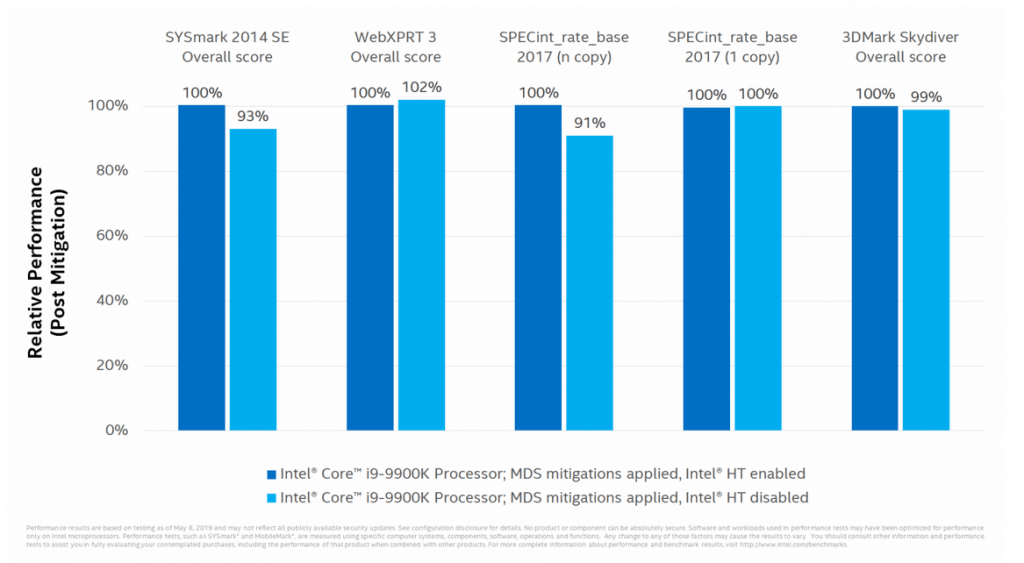Four new vulnerabilities in Intel processors have been identified and can be used through side-channel attacks. The vulnerabilities are called RIDL, Fallout and ZombieLoad.

These vulnerabilities allow attackers to steal passwords access, The wrenches encryption or any other type of data that is loaded or stored in the CPUs buffer memory.
The vulnerabilities are categorized as Microarchitectural Data Sampling (MDS) and are identified by the following four CVEs:
- CVE-2018-12126 - Microarchitectural Store Buffer Data Sampling (MSBDS)
- CVE-2018-12130 - Microarchitectural Fill Buffer Data Sampling (MFBDS)
- CVE-2018-12127 - Microarchitectural Load Port Data Sampling (MLPDS)
- CVE-2019-11091 - Microarchitectural Data Sampling Uncacheable Memory (MDSUM)
The researchers who announced the vulnerabilities, in addition to baptizing them (sic), also created two different websites, from which you can read more:
You should know that all solutions The current patches are just mitigations and do not completely fix the vulnerabilities. To fully resolve these vulnerabilities, all vendors state that you will need to disable hyper-threading, which will affect your computer.
Official MDS Advisories, Patches, or Updates:
- Amazon AWS
- Apple Lossless Audio CODEC (ALAC), advisory and security updates
- Citrix
- Chromium
- Intel

Microsoft
- ADV190013 | Microsoft Guidance to Mitigate Microarchitectural Data Sampling vulnerabilities
- Windows guidance to protect against speculative execution side-channel vulnerabilities
Unfortunately there are no microcode updates available for the following versions of the Windows (and for Windows 10 version 1809, which will be released later):
- Windows 10 Version 1803 for x64-based Systems
- Windows Server, 1803 (Server Core Installation)
- Windows 10 Version 1809 for x64-based Systems
- Windows Server 2019
- Windows Server 2019 (Server Core Installation)
________________
_________________________
- Patch Tuesday May KB4494441, KB4499167, KB4499179 & KB4499181
- Kaspersky antivirus; Be careful, update immediately
- Zuckerberg: splitting Facebook will not help
- Android with digital identity is being prepared by Google





